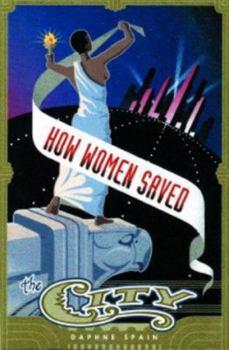How Women Saved the City
Select Format
Select Condition 
Book Overview
In the days between the Civil War and World War I, women rarely worked outside the home, rarely went to college, and, if our histories are to be believed, rarely put their mark on the urban spaces unfolding around them. And yet, as this book clearly demonstrates, women did play a key role in shaping the American urban landscape. To uncover the contribution of women to urban development at the turn of the twentieth century, Daphne Spain looks at the places where women participated most actively in public life -- voluntary organizations such as the Young Women's Christian Association, the Salvation Army, the College Settlements Association, and the National Association of Colored Women. In the extensive building projects of these associations -- boarding houses, vocational schools, settlement houses, public baths, and playgrounds -- she finds clear evidence of a built environment created by women. Exploring this environment, Spain reconstructs the story of the "redemptive places" that addressed the real needs of city dwellers -- especially single women, African Americans, immigrants, and the poor -- and established an environment in which newcomers could learn to become urban Americans. Book jacket.
Format:Hardcover
Language:English
ISBN:0816635315
ISBN13:9780816635313
Release Date:November 2000
Publisher:University of Minnesota Press
Length:332 Pages
Weight:1.25 lbs.
Dimensions:1.0" x 6.2" x 9.2"
Customer Reviews
0 rating





